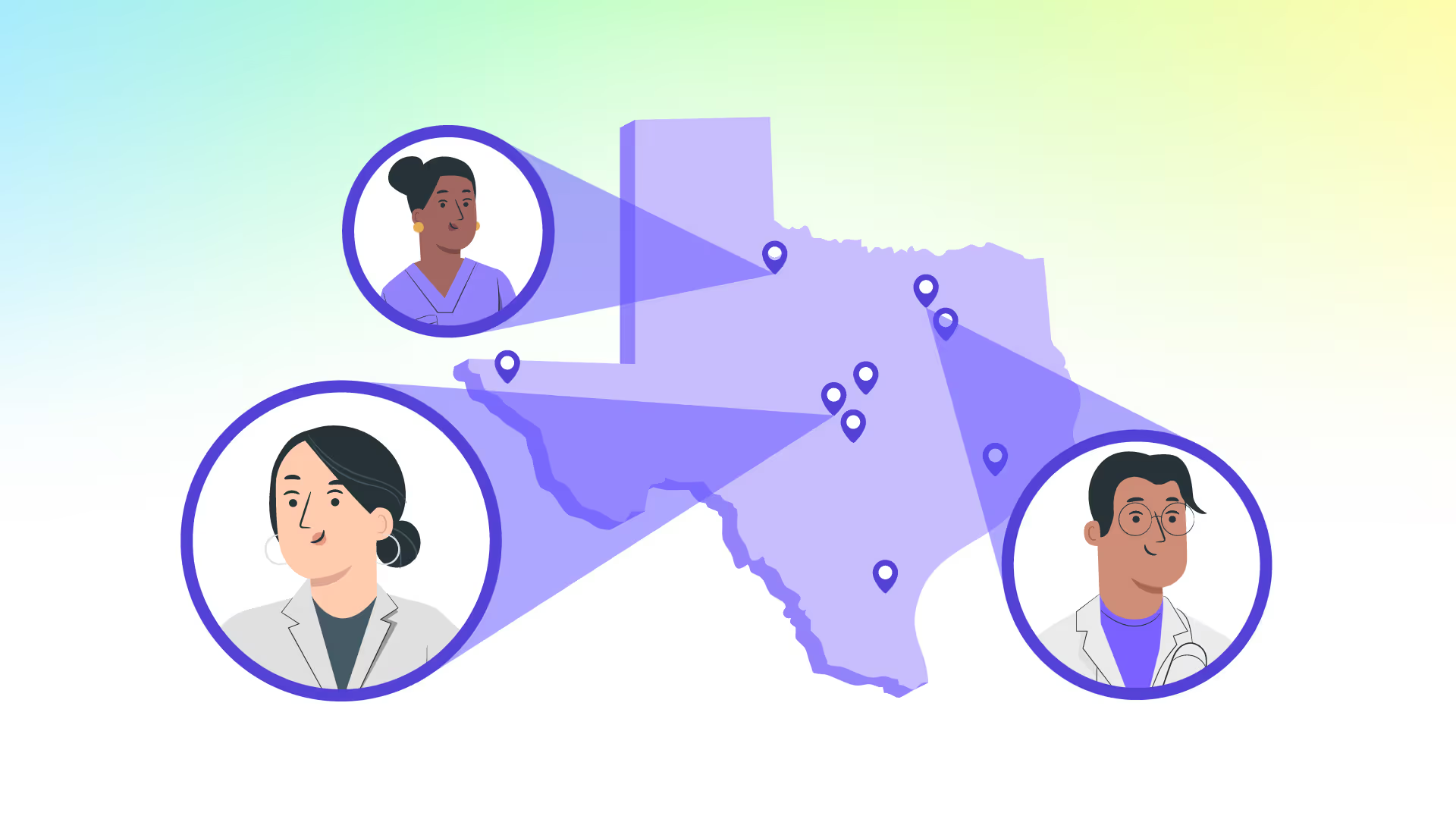Acute Care Nurse Practitioners (ACNPs) are among the highest-paid nurse practitioner specialists, earning average salaries between $120,000 and $160,000 annually, with top earners exceeding $180,000. DNP-prepared ACNPs typically earn even more, with average salaries ranging from $135,000 to $170,000 or higher depending on subspecialty and setting. This compensation reflects their advanced education, board certification, and their vital role in managing critically ill patients.
Understanding the Value Behind Acute Care Nurse Practitioner Salaries
Acute Care Nurse Practitioners (ACNPs) aren’t in it for the drama but they’re trained for it. Whether it’s intubating a crashing patient in the ICU, leading rounds on a trauma floor, or stabilizing adolescents in emergency departments, these nurse practitioners operate in high-pressure environments where seconds matter.
In 2025, acute care nurse practitioner salary trends reflect exactly that: compensation tied to critical decision-making, complex patient care, and advanced procedural skill. While family nurse practitioners may handle wellness exams and health promotion across the lifespan, ACNPs focus on acutely ill adults and young adults—often in full-time, shift-based roles with round-the-clock responsibility.
And if you’ve earned a Doctor of Nursing Practice (DNP)? Your earning potential climbs even higher. Employers are willing to pay top dollar for clinicians who combine advanced science, leadership training, and real-world expertise to keep acutely ill patients alive—and improve system outcomes along the way.
This blog breaks down everything from national acute care nurse practitioner salaries to subspecialty bonuses and how your education, credentials, and employment setting impact your paycheck. Whether you’re an AG ACNP, a soon-to-graduate DNP nurse, or a curious BSN holder considering a shift into acute care, let’s unpack what you're really worth in today’s market.
What Does an Acute Care Nurse Practitioner Do?
An acute care nurse practitioner (ACNP) is a highly trained, board-certified provider responsible for managing the care of acutely and critically ill patients in hospital and emergency settings.
This includes rapid decision-making, advanced diagnostics, and lifesaving procedures. These aren’t the NPs handling routine wellness checks or yearly physical exams, they’re at the bedside in trauma bays, ICUs, and emergency departments, stabilizing patients and collaborating with complex care teams.
Where They Work: High-Acuity Inpatient Settings
Unlike family nurse practitioners, who typically focus on health promotion and primary care across all ages, ACNPs are embedded in fast-paced, high-acuity environments. Common employment settings include:
- Emergency departments
- Intensive care units (ICUs)
- Step-down and telemetry units
- Surgical recovery floors (cardiac, neuro, transplant)
- Internal medicine or hospitalist services
These settings demand constant vigilance, rapid intervention, and the ability to manage sudden patient deterioration.
Importantly, studies show that acute care nurse practitioners improve outcomes in these settings by reducing ICU stay lengths, improving care transitions, and increasing access to high-quality care especially in systems strained by physician shortages.
What They Do: Advanced, Procedural, and Critical
The acute care nurse role is procedure-heavy, medically intense, and essential to hospital operations. Core responsibilities include:
- Performing high-risk procedures like intubation, central line placement, and chest tube insertion
- Managing ventilator settings, sedation protocols, and continuous cardiac monitoring
- Responding to rapid responses and code blues as team leaders or first responders (American Association of Nurse Practitioners)
- Interpreting ABGs, CT scans, labs, and other diagnostics under pressure
- Collaborating with multidisciplinary hospital teams for seamless patient care coordination
In many hospitals, ACNPs serve as primary providers for patients in critical care or step-down units, often writing orders, adjusting treatment plans, and performing bedside procedures independently within their scope.
Who They Treat: Adults, Young Adults & Adolescents
While acute care NPs typically specialize in treating adults and older adolescents, certification may vary. Most ACNPs are licensed as Adult-Gerontology Acute Care Nurse Practitioners (AG ACNPs), managing patients from roughly age 13 through end of life.
In trauma and ICU settings, ACNPs often work with young adults and even older adolescents, depending on facility scope. For younger patients, a PNP-AC (Pediatric Acute Care NP) fills a similar role. Regardless of population, ACNPs are trained to handle acute illness across a variety of high-risk scenarios.
Also, the growing role of ACNPs in managing transitional-age patients, those who fall between pediatric and adult care models, especially in specialized areas like trauma or neurocritical care
Education, Certification & Career Path
To become an ACNP nurse, RNs must:
- Complete a Bachelor of Science in Nursing (BSN)
- Earn a Master’s or Doctor of Nursing Practice (DNP) in acute care
- Complete at least 500–1,000 clinical hours in acute settings
- Pass national boards such as AGACNP-BC (ANCC) or ACNPC-AG (AACN)
- Maintain certification through continuing education, often including training in procedures like intubation and critical care pharmacology
Many employers now prefer DNP acute care nurse practitioners, particularly for leadership or educator roles, due to their training in both clinical care and healthcare systems management.
Who’s Hiring and Why They Pay Well
Most acute care NPs work full time for large hospital systems, trauma centers, and academic medical centers. Top employers include:
- Level I and II trauma hospitals
- Transplant and surgical ICUs
- Cardiology and neurology services
- Private critical care or hospitalist groups
These positions often involve 12-hour shifts, weekends, and holiday coverage, leading to lucrative shift differentials, bonuses, and call pay.
Given their credentials, procedural skills, and ability to manage rapidly decompensating patients, it’s no surprise that acute care nurse practitioner salaries remain among the highest in nursing.
What is the acute care nurse practitioner salary in 2025?
These providers deliver complex, time-sensitive care in the most demanding hospital settings. They’re running codes, managing ventilators, and performing invasive procedures on critically ill patients. And they’re being paid accordingly.
ACNP Salary : National Overview
According to recent reports, the average acute care nurse practitioner salary in the U.S. is $120,368 per year, with some experienced providers earning over $180,000 annually depending on specialty, experience, and location.
Hourly rates typically average around $57.87/hour, with premium settings offering over $65/hour for ACNPs with advanced procedural skills and on-call responsibilities.
DNP Nurse Salary
Earning a Doctor of Nursing Practice (DNP) doesn’t just elevate your education, it elevates your paycheck too.
The DNP acute care nurse practitioner salary averages between $135,000 and $170,000+, with many employers paying premiums for advanced degrees in high-acuity settings.
DNP-prepared ACNPs often take on:
- Subspecialty leadership roles (e.g., trauma program NP lead)
- Teaching or precepting positions in academic medical centers
- System-level care coordination and protocol development
Their dual focus on clinical expertise and systems thinking makes DNP-prepared ACNPs particularly valuable in larger hospital systems and in roles requiring policy, safety, and EHR leadership.
And where you work geographically matters just as much as your clinical setting. According to recent salary data, these are currently the highest-paying cities for acute care nurse practitioners:
- New York, NY $128,930 Avg. Salary
- Miami, FL $114,984 Avg. Salary
- Boca Raton, FL $103,725 Avg. Salary
How ACNP Salaries Compare to Other NP Specialties
Acute care nurse practitioners (ACNPs) are not only in high demand, they’re also among the top earners in the nurse practitioner world, especially those with a Doctor of Nursing Practice (DNP). Here's how ACNP compensation stacks up against other high-paying specialties:
- Acute Care Nurse Practitioner (ACNP)
- Average Salary: $120,000–$130,000/year
- Why It Pays Well: Manages critically ill patients in hospitals, performs high-risk procedures, provides 24/7 coverage.
- DNP Acute Care Nurse Practitioner
- Average Salary: $135,000–$170,000/year
- Why It Pays Well: Advanced education enables clinical leadership, protocol development, and systems-level thinking.
- Cardiology Nurse Practitioner
- Average Salary: $125,000–$135,000/year
- Why It Pays Well: Specializes in managing hypertension, arrhythmias, heart failure in both inpatient and outpatient settings
- Oncology Nurse Practitioner
- Average Salary: $125,000–$135,000/year
- Why It Pays Well: High emotional burden and expertise in chemotherapy/radiation protocols
- Emergency Nurse Practitioner (ENP)
- Average Salary: $120,000–$130,000/year
- Why It Pays Well: Broad clinical scope, trauma care, acute diagnostics in fast-paced ER settings
- Dermatology Nurse Practitioner
- Average Salary: $120,000–$130,000/year
- Why It Pays Well: High patient volume, cosmetic procedures, private practice potential
- Pediatric Acute Care NP (PNP-AC)
- Average Salary: $115,000–$125,000/year
- Why It Pays Well: Specialized care for critically ill infants and children in pediatric ICUs
- Family Nurse Practitioner (FNP)
- Average Salary: $110,000–$120,000/year
- Why It Pays Well: Flexible practice options across outpatient, rural, and telehealth—but lower acuity and procedural demand
How to Maximize Your ACNP Salary Without Burning Out
The role of the acute care nurse practitioner is already high-paying—but if you're strategic, you can increase your income even more while avoiding burnout. Here’s how to earn more without compromising your well-being:
1. Specialize Within Acute Care
- Subspecialties like cardiothoracic ICU, neurocritical care, trauma, and transplant surgery consistently pay more per year than general inpatient roles.
- ACNPs trained in procedures such as chest tube placement, arterial line insertion, and post-op recovery management are often in higher demand.
- Employers value niche skills that reduce reliance on other providers and improve patient throughput in high-volume units.
2. Consider Travel, Contract, or Locum Tenens Work
- Travel ACNPs and locum tenens NPs can earn $90–$110 per hour, often with housing stipends and flexible scheduling.
- Short-term contracts are ideal for experienced providers looking to boost earnings quickly without long-term commitments.
- This model allows for geographic flexibility, variety in patient populations, and exposure to a range of hospital systems.
3. Negotiate Using Regional Data and Experience
- Use current salary benchmarks—such as those on NPHire or Glassdoor—to understand your market value.
- Highlight your clinical scope, on-call experience, certifications, and procedural autonomy during negotiations.
- Don’t settle for vague “competitive compensation.” Ask for clear numbers, shift differentials, and bonuses.
4. Leverage Your DNP for Advanced Roles
- A DNP acute care nurse practitioner often qualifies for leadership roles, protocol development, and hospital system initiatives.
- Many DNPs move into high-paying educator, clinical coordinator, or administrative roles while maintaining part-time clinical practice.
- The additional salary boost—$10,000 to $30,000+—is especially noticeable in academic hospitals and trauma systems.
5. Choose the Right Employer and Schedule
- Some facilities overwork ACNPs due to provider shortages—leading to burnout and high turnover.
- Look for hospitals with supportive attending teams, balanced patient loads, and a culture of respecting NP autonomy.
- If possible, aim for full-time roles with blocked shifts (e.g., 3 12s) to preserve recovery time and prevent exhaustion.
The acute care nurse practitioner salary reflects more than just advanced training; it reflects high-stakes decision-making, technical skills, and a readiness to lead in critical environments. But before any of that comes into play, it starts with one thing: your clinical experience.
From the procedures you perform to the teams you shadow, your clinical rotations shape your confidence, your resume, and ultimately, your earning potential.
Whether you’re pursuing a DNP, just entering your acute care NP program, or navigating your final semester, your clinical placement is the most important investment you’ll make in your career.
If you want to be among the highest-paid NPs in the country, it’s not just about the letters after your name. It’s about being trained, prepared, and proven—starting with your first real-world rotation.
Your ACNP Salary Starts With the Right Clinical Experience
The path to becoming a high-earning acute care nurse practitioner doesn’t start at your first job offer; it starts the moment you choose your clinical rotations. Where you train, who precepts you, and what settings you’re exposed to all shape your skills, confidence, and eventual salary.
Whether you're working toward your AG ACNP, DNP, or completing your master’s in acute care nursing, your clinical experience is the foundation of your entire career.
At NPHub, we help you build that foundation with zero guesswork.
Ready to Match with a Preceptor?
Don’t wait until you're desperate. Secure your rotation today and take the first step toward becoming a confident, high-earning acute care nurse practitioner.
Frequently Asked Questions
1. How much do acute care nurse practitioners make in 2025?
The average acute care nurse practitioner salary in 2025 is between $120,000 and $130,000, with top earners making $150,000+ depending on setting, region, and specialty, DNP-trained ACNPs often earn higher starting salaries.
2. What is the dnp acute care nurse practitioner salary?
DNP acute care nurse practitioner salary ranges from $135,000 to $170,000+. Employers value the advanced training in leadership, systems, and quality improvement that DNPs bring.
3. What factors influence an ACNP’s salary?
Your clinical setting, shift schedule (nights/weekends), preceptor experience, subspecialty (e.g., trauma, neuro), and certifications (e.g., AGACNP-BC) all impact your salary. Location is also a key factor—urban and coastal hospitals pay more.
4. How do ACNP salaries compare to family nurse practitioners (FNPs)?
ACNPs earn $10,000–$20,000 more than most family nurse practitioners due to working in critical care and inpatient hospital settings. FNPs typically work in outpatient clinics with lower acuity.
5. Is it better to become an FNP or ACNP for salary?
If you're focused on income and high-acuity care, ACNP offers better pay and opportunities. If you're drawn to primary care, preventive medicine, or telehealth, FNP offers more flexibility.
6. Do I need a DNP to work as an ACNP?
No, you can practice as an ACNP with an MSN, but the DNP is becoming the preferred standard for leadership, faculty, and advanced system-level roles.
7. How do I find a clinical placement for acute care?
You can book a guaranteed acute care clinical rotation through services like NPHub, which matches NP students with preceptors in ICU, ER, trauma, and hospitalist roles—without the ghosting or delays.
8. How many clinical hours do ACNP students need?
Most ACNP programs require 500–1,000 clinical hours in acute care settings under a board-certified preceptor. Some DNP programs may require more for capstone or systems projects.
9. Can I do my ACNP clinicals in emergency departments or ICU?
Yes. Many ACNP students complete rotations in ICU, ER, step-down, or surgical floors, depending on the preceptor’s certification and school approval.
10. What’s the fastest way to find a preceptor for acute care rotations?
Platforms like NPHub let you search by setting, city, schedule, and specialty—then book directly. It’s the fastest way to complete your clinical hours on time and start earning faster.
Key Definitions
- ACNP (Acute Care Nurse Practitioner)
A nurse practitioner trained to diagnose and manage acutely and critically ill patients in hospital-based settings like ICUs and emergency departments. - AGACNP-BC
Adult-Gerontology Acute Care Nurse Practitioner – Board Certified. A certification from the ANCC allowing practice with adolescent to elderly patients. - DNP (Doctor of Nursing Practice)
A terminal degree in nursing practice that includes advanced clinical training, leadership, policy, and systems-level coursework. - PNP-AC
Pediatric Acute Care Nurse Practitioner. An NP trained to care for acutely ill infants, children, and adolescents, typically in pediatric hospitals. - Preceptor
An experienced, board-certified clinician (usually an NP or MD) who supervises and evaluates NP students during clinical rotations. - Clinical Hours
Hands-on patient care hours required in NP programs, typically 500–1,000 hours, completed under supervision in approved clinical settings. - Locum Tenens
A short-term or temporary NP job placement, often high-paying, used to fill urgent or unexpected staffing gaps.
About the author
- NPHub Staff
At NPHub, we live and breathe clinical placements. Our team is made up of nurse practitioners, clinical coordinators, placement advisors, and former students who’ve been through the process themselves. We work directly with NP students across the country to help them secure high-quality preceptorships and graduate on time with confidence. - Last updated
May 29, 2025 - Fact-checked by
NPHub Clinical Placement Experts & Student Support Team - Sources and references
- https://nurse.org/education/DNP-salary/
- https://www.nursepractitioneronline.com/articles/pros-cons-acnp/#:~:text=ACNPs%20are%20well%2Dcompensated%20for,financial%20stability%20and%20job%20satisfaction.
- https://www.nursepractitioneronline.com/articles/category/specialties/occupational-health-nurse-specialties/
- https://www.glassdoor.com/Salaries/acute-care-nurse-practitioner-salary-SRCH_KO0,29.htm
- https://www.gcu.edu/blog/nursing-healthcare/what-acute-care-nurse-practitioner
https://www.npjournal.org/action/showPdf?pii=S1555-4155%2809%2900214-1 - https://jobs.asra.com/salary/acnp-acute-care-nurse-practitioner
Find a preceptor who cares with NPHub
Book a rotation.webp)








.webp)


.webp)



%20(3)%20(2).svg)
.webp)